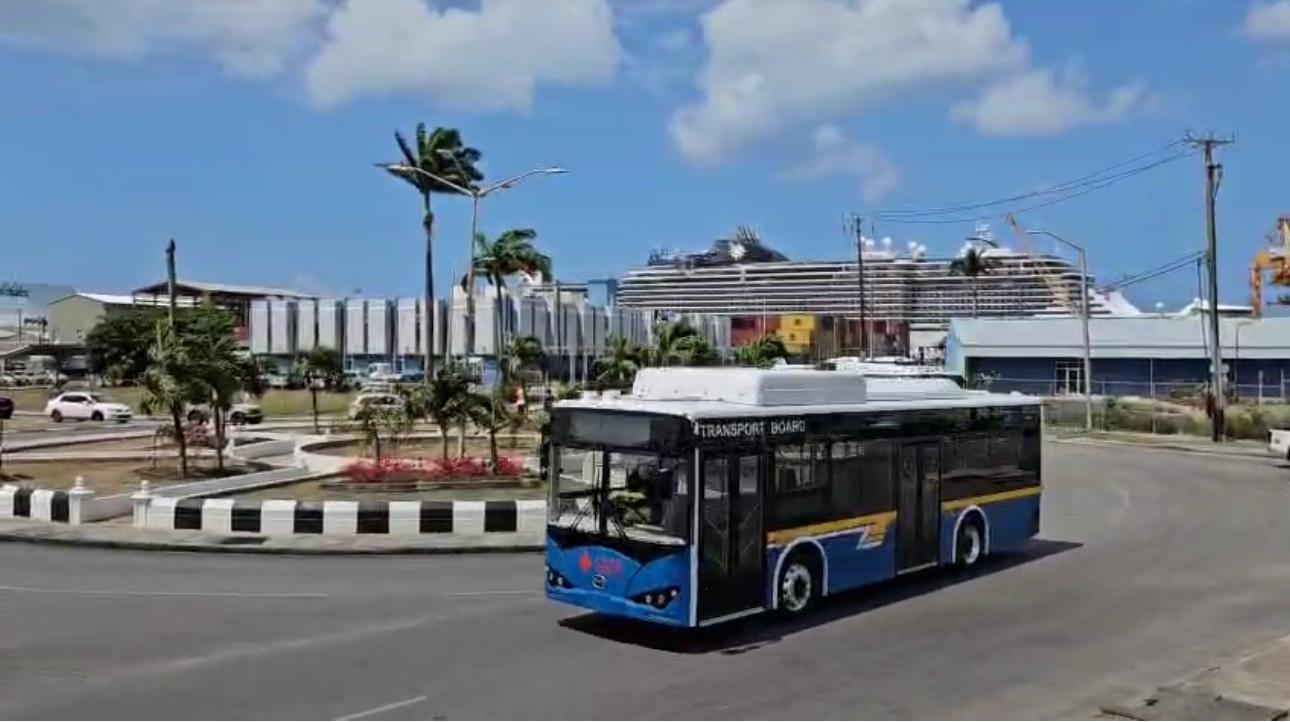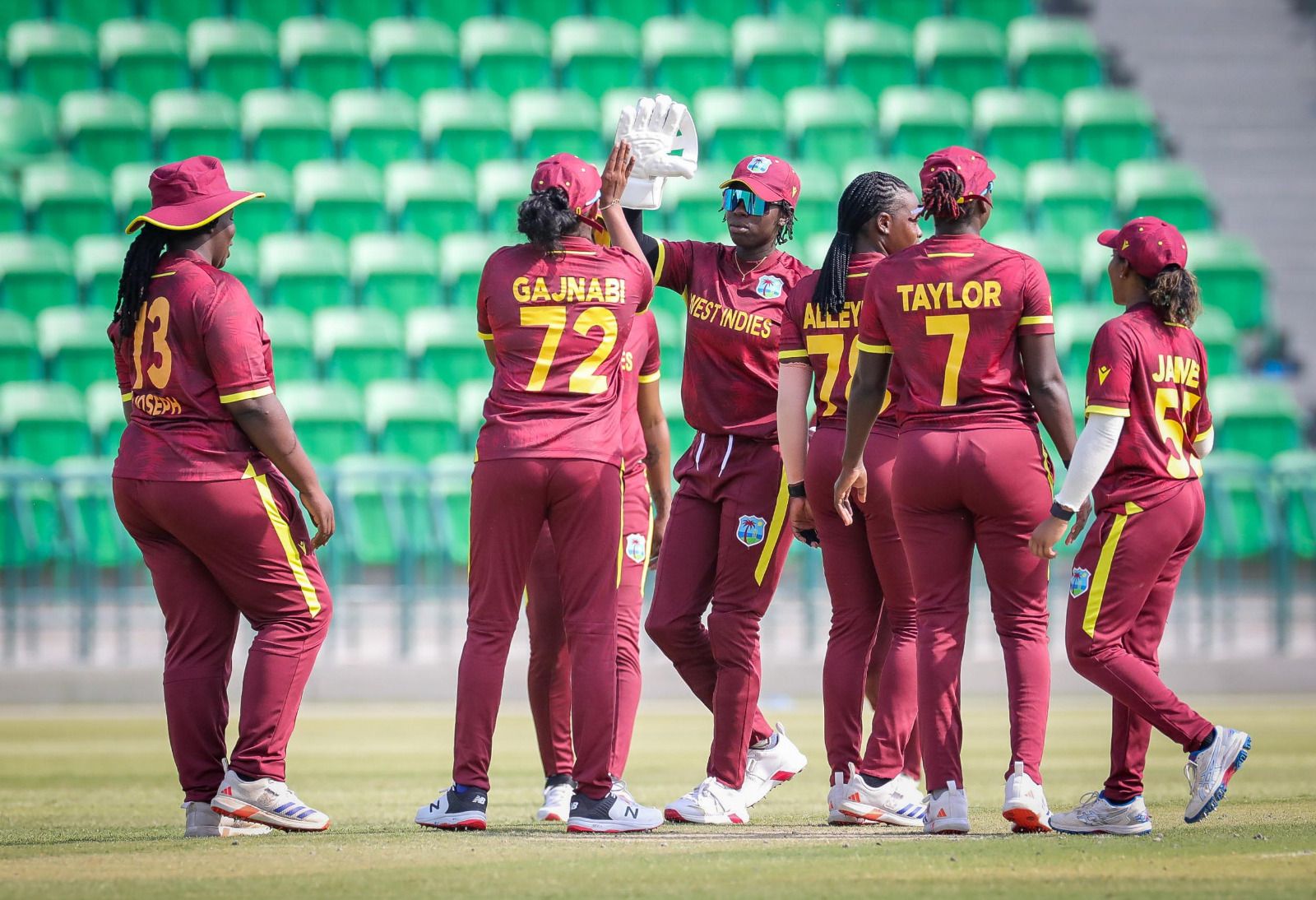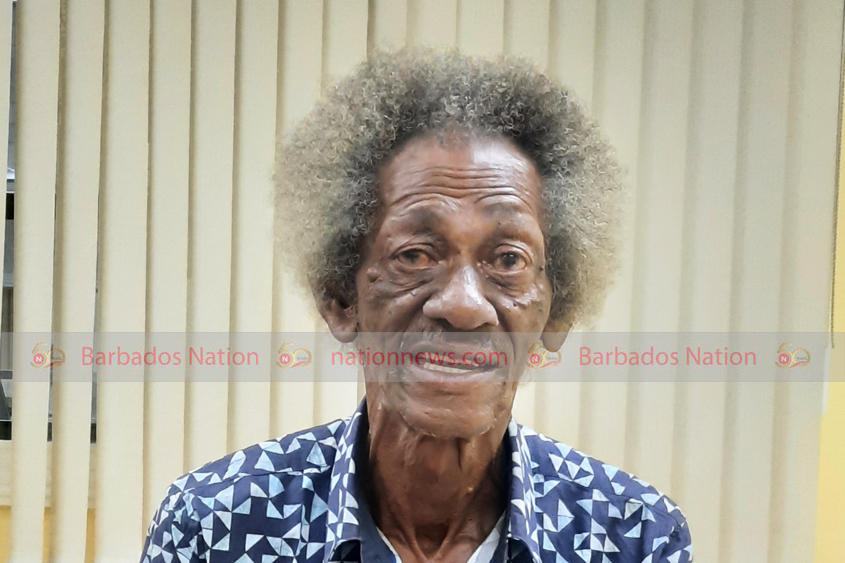

The Barbados Transport Board welcomed the arrival of 30 electric buses yesterday, with 35 more on the way.
Donated by the People’s Republic of China, they are expected to be on the road by May 1, says Minister of Transport and Works Santia Bradshaw.
She said the new buses will be deployed to alleviate transport challenges in rural areas such as Connell Town and Pie Corner in St Lucy, St Albans in St James, Boscobel in St Peter, Shorey Village and Chalky Mount in St Andrew as well as Sugar Hill and Bathsheba in St Joseph.
The 30 electric buses were presented to the ministry in a ceremony held at the Bridgetown Port yesterday morning.
Expressing Government’s appreciation of the growing relationship with China, Bradshaw, who is also Deputy Prime Minister, announced that negotiations were ongoing for 35 more buses to arrive by the end of the financial year.
“It is our hope and certainly our intention over the next few months to be able to expedite the additional 35 buses coming to the island, as well as being able to put this country in a position where the scheduling of our buses is more relevant to the demands and the changes across the landscape.
“We want to be able to provide public transportation where people need it most and, therefore, it requires us to have the fleet in order to be able to expedite that process,” the minister said.
The newly acquired buses will be housed at the Weymouth, St Michael facility where they will be weighed, inspected and registered.
In addition, a number of functions will be installed such as the cashless system, destination signs, cameras and wireless connection. These preparations will be assisted by electric vehicle operator company BYD, and a Chinese technical team.
Bradshaw said the 30 buses will add to the existing 59 electric buses on the island, designating Barbados as the largest electric fleet provider in the region.
She said this forms part of the administration’s aim to move away from the use of diesel buses.
“Our intention is really to take the diesel buses out of the existing fleet over a period of time. That has always been the stated intention and hence the transition to electric buses.
“With these buses, what it allows us to do is to bring down our expenditure on the maintenance costs that we are currently outputting in relation to the cost of maintenance of diesel buses as well as fuel costs,” she added.
The upkeep of the electric fleet will also be supported by the donation of spare parts and 30 chargers to facilitate their repair and maintenance.
“Sometimes we are challenged trying to get spare parts onto the island, but the People’s Republic of China have facilitated us in addition to the buses. We also have 30 chargers, which will again require us to install much-needed infrastructure to allow the buses to be charged,” she said, while adding that the Transport Board’s transition to a DC charger will enable a faster charge for buses.
Speaking to public concerns about buses parked at the Mangrove depot in
St Philip, Bradshaw said her ministry will work speedily to return damaged or faulty buses into operation, but noted that many of the units were often there for recharging and minor servicing and maintenance, along with those which may require new parts or major repairs.
She also acknowledged the impact that potholes and poor road conditions play in causing wear and tear on buses, and said the ministry’s roadworks programme would seek to address those challenges.
“Just as other personal transportation vehicles sometimes have issues in terms of potholes and poor conditions of roads, our buses have not been spared, and I dare say that our electric buses are very sensitive.
“Therefore, we have, in addition to trying to improve the conditions generally, been very sensitive, particularly in the Scotland District and rural parishes, to ensure through the assistance of the People’s Republic of China that we improve the conditions in those areas so that these buses, when they drive on the roads, are not facing constant repairs as a result of damage caused to their infrastructure,” she said.
Talks relating to the donation of the electric buses were first raised during Prime Minister Mia Amor Mottley’s visit to China in January 2024, where she attended the World Economic Forum and also met with Chinese Premier Li Qiang.
Out of those discussions, the premier committed to a donation of electric buses for the people of Barbados, and in April of 2024 an agreement was signed between Minister of Foreign Affairs and Foreign Trade Kerrie Symmonds and the China International Development Corporation Agency.
Also addressing yesterday’s ceremony was commercial counsellor of the Chinese Embassy in Barbados, Liang Jie, who said the donation was a landmark achievement in the evolving partnership between China and Barbados, and efforts towards environmentally friendly options.
“These new electric buses make a meaningful contribution to Barbados’ carbon neutrality and all over contribute to the public transportation, and bring plentiful benefits to Barbadian people, school students and the daily commuter alike,” he said.
(JRN)





